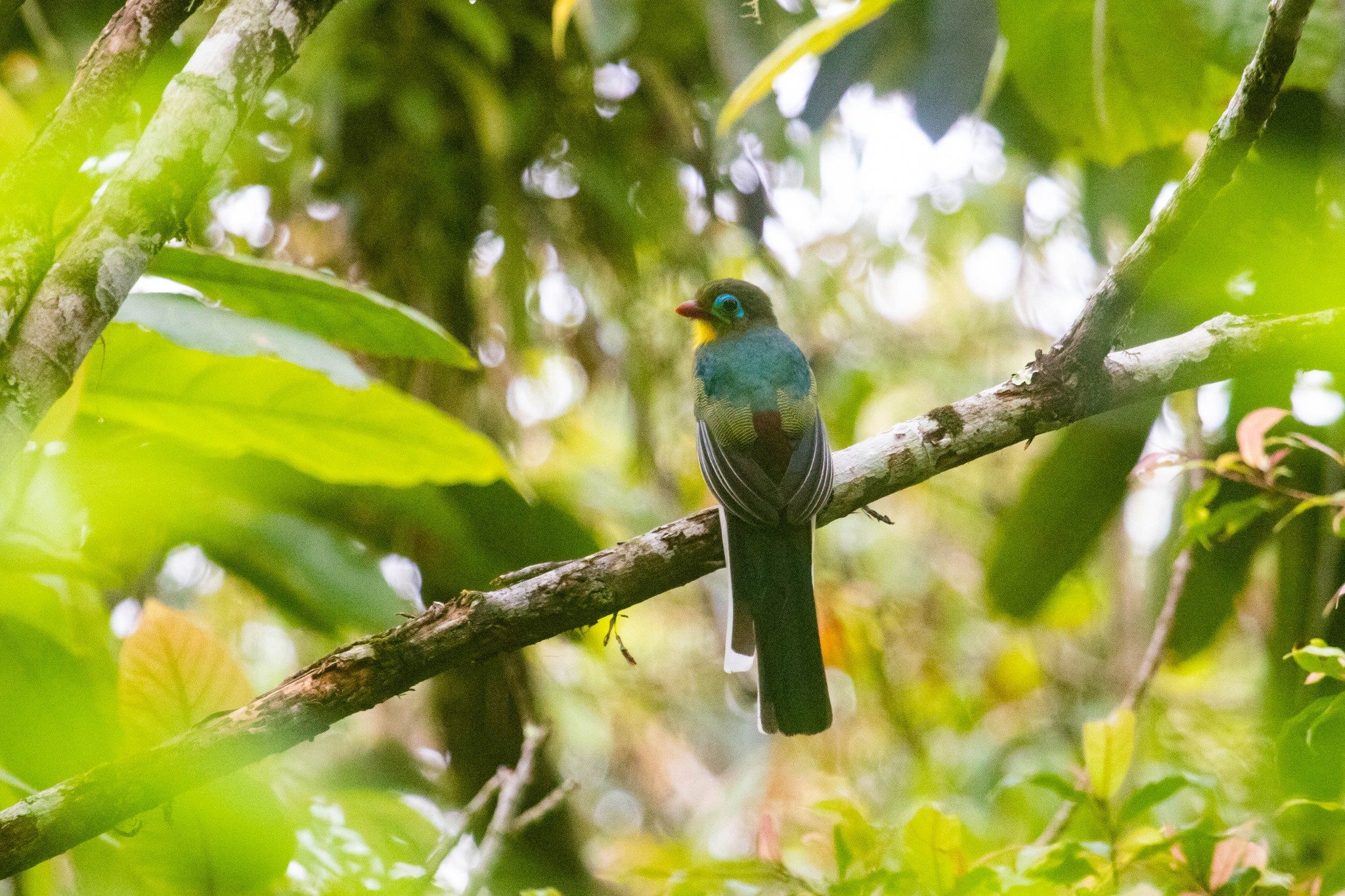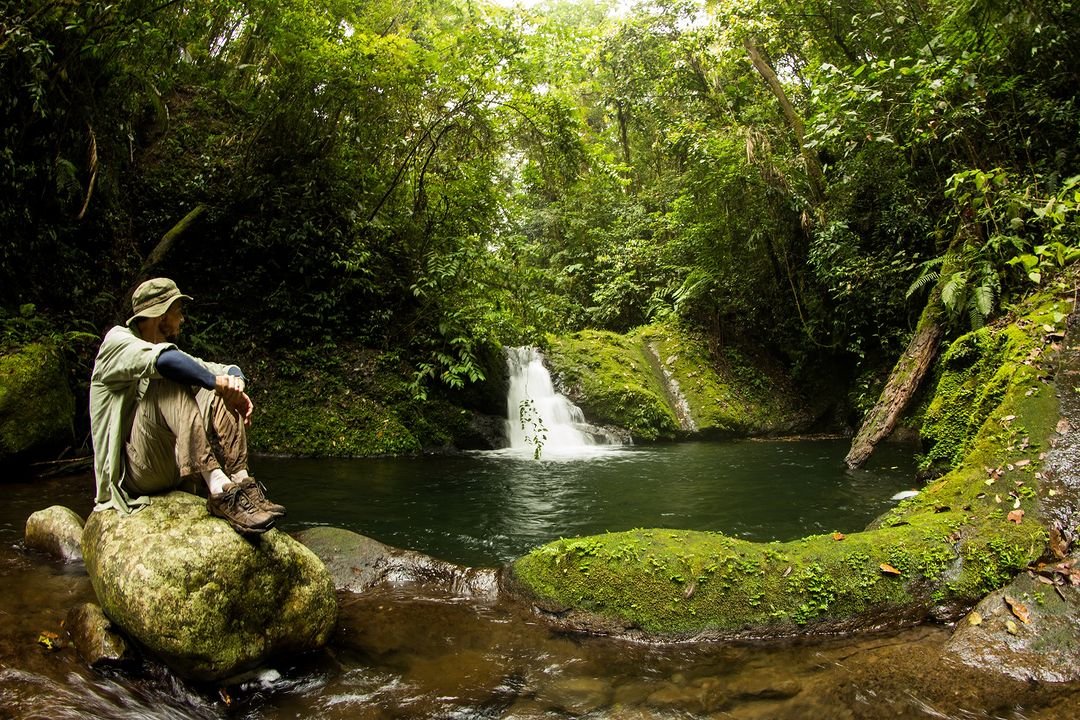Eco-Tourism Adds Eco-Coffee Farming
Wild Sumatra Tours works with rural communities to empower local guides, helping connect them with off-the-beaten-path adventurers looking for authentic trekking and cultural experiences in the Bengkulu region of Indonesia. Due to the impact of COVID on tourism, they’ve expanded their efforts to include sustainable coffee production and agricultural research and development. Working and offering training with their local communities empowers the local cultures to take pride in themselves, their culture, and their environment.
In the heart of Indonesia lies a social venture called Wild Sumatra Eco-Tourism. Founded in 2014, Wild Sumatra Tours has been helping responsible travelers discover the most remote wild places left on the mysterious, mountainous, rainforest-shrouded island of Sumatra. They believe strongly that community-based ecotourism can help safeguard the still-untouched forests and wildlife of Sumatra, while helping to improve the quality of life for people living on the forest’s edge.
When tourism came to a halt during COVID, Wild Sumatra Eco-Tourism added coffee growing and production to their venture. While staying true to their beliefs, they sought to grow coffee in an eco-friendly and sustainable way. Their ideas and techniques bring a change to the traditional coffee farming industry in Sumatra. The region has been known for producing high-quality coffee beans, but farmers here have struggled to earn a living from their crops due to low market prices and lack of access to sustainable farming practices.
To address this issue, Wild Sumatra Eco-Tourism has been experimenting with different farming techniques that not only improve the quality of coffee beans but also generate income for farmers. Here are some of the innovative practices they have implemented:
Integrating Livestock into Farming
One of the recent initiatives is to integrate livestock into their practices. Specifically, they added 161 ducklings to their farm and plan to grow them several purposes including for meat sale and egg production. The ducks are allowed to roam freely in a large area of the farm, eating snails and weeds, and depositing their manure to strengthen the soil's natural health. This practice not only improves the soil quality but can also generate additional income for the farmers.
Using Jakaba Fertilizer
Most coffee farmers in Sumatra are poor and struggle to earn a living from their crops. They often use strong chemical fertilizers and insecticides and even spray weed killer under their coffee trees to combat weeds, which ultimately harms the soil and the coffee trees. Wild Sumatra Eco-Tourism has introduced a relatively new fertilizer technique known as Jakaba. It is a fungus grown from bamboo roots that introduces microbes to the soil. This allows the plants to better make use of the naturally occurring nutrients as well as any livestock manure. More microbes in the soil equal better soil health, which translates into better tree health and a cleaner environment.
Nitrogen-Fixing Ground Cover
To tackle the weed problem another way, Wild Sumatra Eco-Tourism has been planting a nitrogen-fixing ground cover. However, this brings a new challenge as the ground cover needs to be cut. To address this issue, the organization has started experimenting with solutions to cut the ground cover while also potentially increasing the financial prospects of farmers. The ducks on their farm, whom they let out each morning in a fenced area, eat the grass and deposit their manure. This practice has had its challenges, but it seems like it will be a viable option for farmers in the region.
Planting Citronella
Wild Sumatra Eco-Tourism has also planted citronella throughout the property, which has two potential uses. First, as it grows, the presence of the plant helps ward off CBBs (Coffee Borer Beetles), a notorious pest that damages coffee crops. Second, the organization plans to distill the leaves, selling the oil but using the leftover water emulsion to spray the coffee trees, as well as other fruit trees and vegetables. The citronella can potentially be harvested every 90 days, providing an additional source of income for the venture.
Impact on the Community
Wild Sumatra Eco-Tourism's initiatives have had a positive impact on the community. By promoting sustainable farming practices, the organization is not only improving the quality of coffee beans but also generating additional income for the local farmers. The most encouraging thing so far has been the response of local farmers as they see their project. There is high interest in incorporating livestock that can also benefit their coffee. They plan to evaluate this first batch of ducks and begin to refine their process so that other farmers might also be able to duplicate it.
Be sure to follow us on social media to see the future social impact from this social venture and entrepreneur.
Learn more about Wild Sumatra Eco-Tourism and donate to their cause here.






